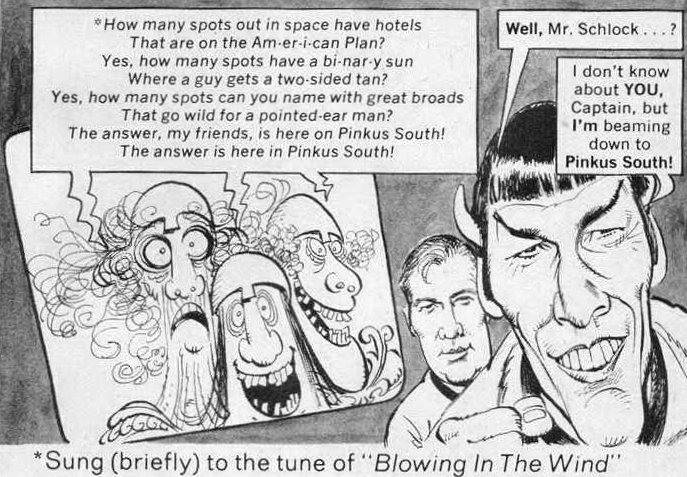Sung to the Tune of…!
Do you spontaneously rewrite famous songs and, like, you can’t help it? Do random tunes appear in your head, out of the blue—but with words custom-tailored to your current, personal, highly particular situation?
If you suffer from this acute musical affliction on a regular basis and are between the ages of 25 and 85, odds are you experienced early exposure to songs Sung to the Tune of in the impossibly great golden years of MAD Magazine.
For the record (and you can tell your friends and family I said so): there’s nothing to be done about this condition—no cure and no antidote. You’re “Sung to the Tune of” for life so you might as well roll with it!
For half a century, MAD Magazine turned the American popular song—which, at that time, was arguably the strongest electric current in our language—into something anybody could bend and break at will. No song was too sacred!
Among the many greats who penned these “rewritten hits” for MAD, none was more prolific than Frank Jacobs, a former PR man and sometimes columnist for Fishing Gazette. Jacobs was brilliant, daffy, fearless—he took on everything from “The Reagan” (a remix of Poe’s Raven) to “The Hymn of the Battered Republic” to “Talk Show Fan” (sung to the tune of “Nowhere Man.”) For 57 years, Jacobs laid down masterpiece after masterpiece, including “On a Clear Day You Can See a Funny Girl Singing ‘Hello Dolly’ Forever,” “Antennae on the Roof,” and “The Force and I (The Star Wars Musical.)”
Other great song rewriters included Stan Hart (“The Sound of Money”), Nick Meglin (“Wouldn’t it be Kerouac”), and Larry Siegel (“Mad’s College Songs for Traitors, Defeatists, and Cowards.”) They grabbed any genre and took no prisoners, dissembling high culture, counter culture, politics, class, race, sex, daily life, human relations, and anything else you could make fun of.
Most of all, they made it look easy.
In fact, the MAD men had to fight for their right to parody. In Berlin v E.C. Publications, Inc., 329 F.2d 541 (2d Cir. 1964), the US Court of Appeals for the Second Circuit came down hard on MAD for a special edition songbook that contained 57 goof-outs including “Louella Schwartz Describes Her Malady.” Irving Berlin wasn’t the only one suing—he’d been joined by a slate of music publishers representing Jerome Kern, Cole Porter, Richard Rodgers, Lorenz Hart, and Oscar Hammerstein II—pretty much a who’s who of Broadway’s top cats.
These formidable plaintiffs wanted no less than $25 mil in damages but thankfully the trial court ruled in MAD’s favor, setting a legal precedent for parody that has stuck ever since. Only two songs—“There’s No Business Like No Business” (ha!) and “Always”—were singled out as unfair use because the joke versions “hewed too closely” to the originals.
The Sung to the Tune of Era had its cake and ate it too—the flowering of the hit parade during America’s boom time and the crazy courage to use those hits to deflate every mendacity in sight. Together these loons gave every line a zetz of that very specific yet impossible-to-define MAD humor—slightly cynical, definitely skeptical, never cruel, but always divining for the laughable uncut truth.
So next time you’re belting it out in the kitchen, send up a word of thanks to these guys, and call yourself a proud Sung-to-the-Tuner!






